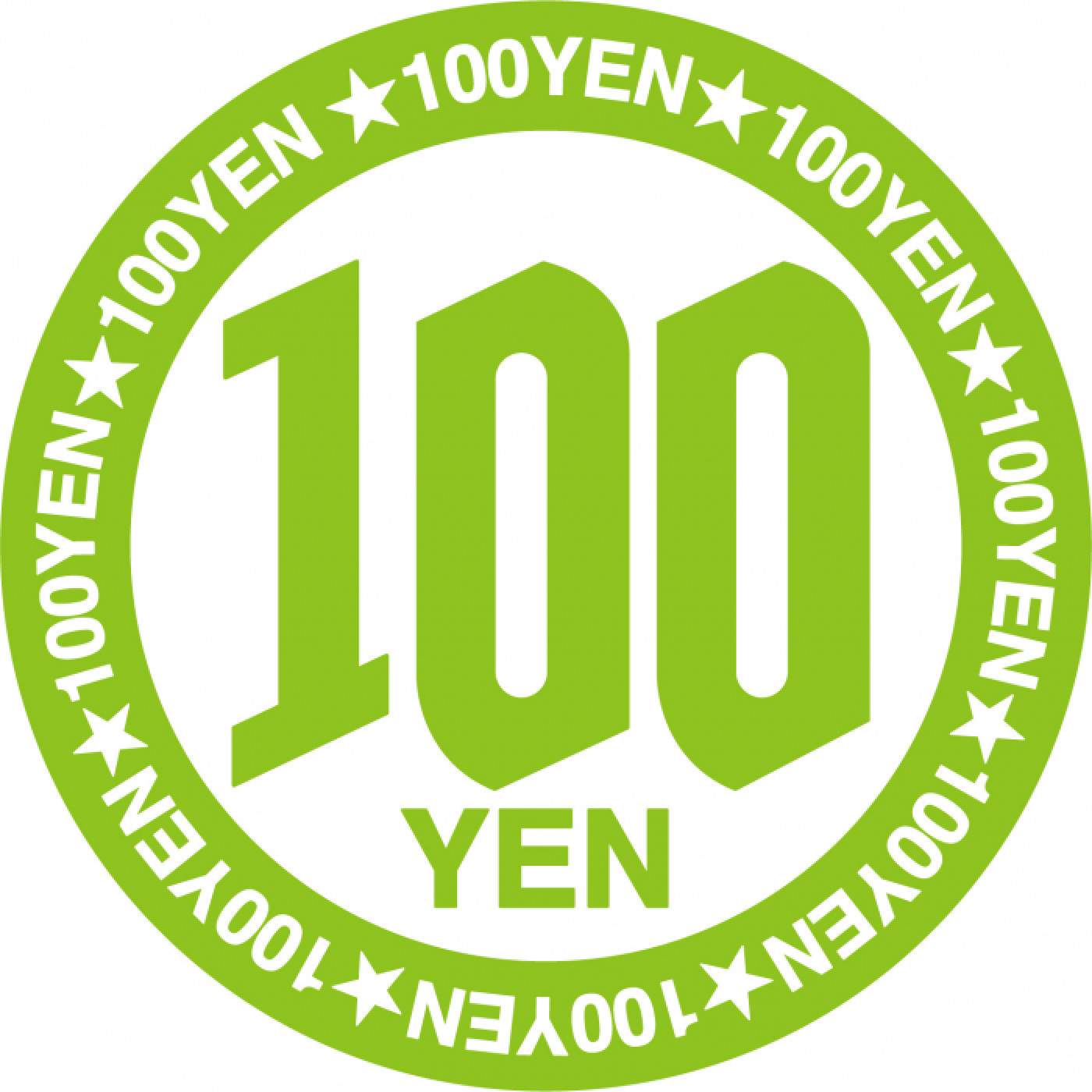Where to go grocery shopping in Japan? What types of shops are there in Japan? How to get my daily necessities in Japan? If you’re thinking about these questions, we recommend reading this article introducing the different types of shops those living in Japan go to for grocery and daily necessities shopping.
Table of Contents
- Grocery Shopping in Japan
- Types of Groceries and Daily Necessities Shops in Japan
- Places to Get All Your Shopping Done
- Online Grocery Shopping in Japan
- Takeaway (Bonus Content!)
Grocery and Daily Necessities Shopping in Japan
Before we go into the main bulk of the article, let us first have a quick look at how grocery shopping is like in Japan.
Point Cards (ポイントカード)

A huge part of Japan’s shopping culture is collecting points for spending a certain amount of money. There are many benefits to collecting points like exchanging the points for discounts and rewards. One of the first things cashiers will ask you at the cash register is whether you have a point card, 「ポイントカードお持ちでしょうか?pointo kaado o-mochi deshouka?」.
Eco-Bag / My Bag (エコバッグ・マイバッグ)
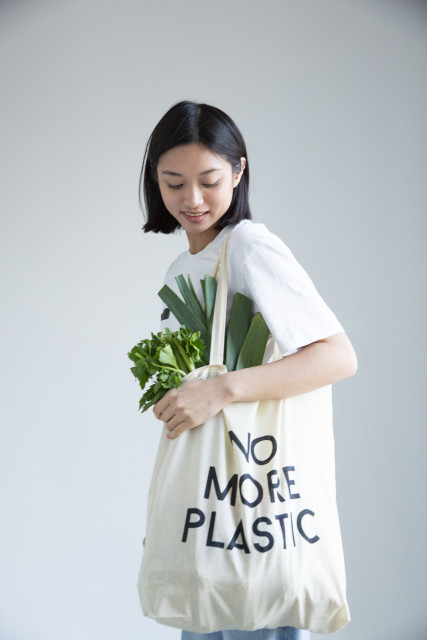
As part of efforts to protect the environment, most areas and establishments in Japan have stopped providing plastic bags for free. Customers are requested to bring their own eco-bags, or purchase one for future usage. Plastic bags are still available but for a fee.
Seasonal Goods (季節限定)
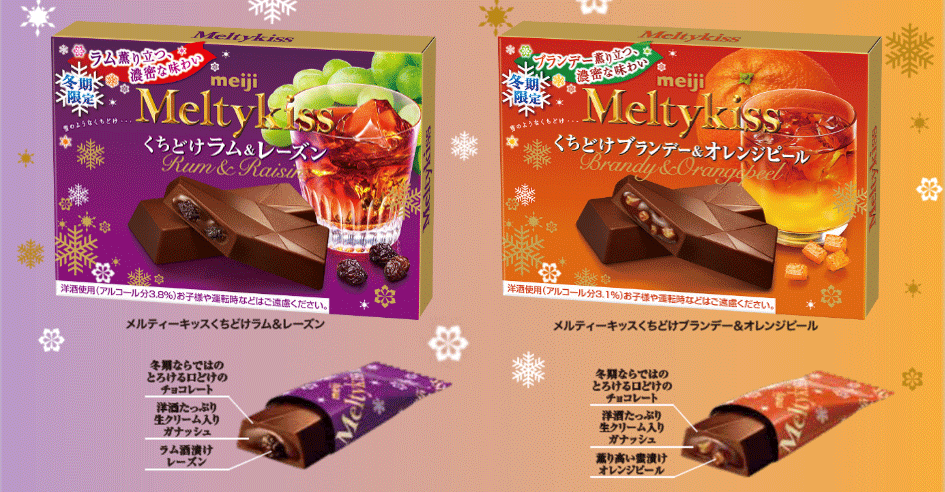
Image Credit: ©Meiji Co., Ltd - Winter Limited-Time Melty Kiss
Irrespective of fresh produce, shelf-stocked food & drinks, skincare products, or lifestyle goods, shops in Japan always refresh their stocked items based on seasonal availability and needs. For example,
Supermarkets
Availability of fresh produce like vegetables, fruits and fish change throughout the year. For example, in summer there’s watermelon, peach, melon for fruits, and unagi for fish. In winter, strawberries start to be sold near the end of winter to early spring, and buri (yellowtail) fish are abundant and cheap.
100 Yen Shops, Lifestyle Stores
These places also follow the seasons according to what customers need the most. For example, in summer they stock summery goods like summer home decorations, cool sheets, items to overcome the summer. Whilst in winter, an assortment of gloves, warm socks and scarves usually become available. And in spring, all sorts of sakura-themed items become available including picnic mats and other items needed to enjoy hanami.
Drugstores
Though less obvious than the other types of shopping places, drugstores do join in on the seasonal fun. The most obvious changes can be observed in the cosmetics area and the shop front display. In summers, T-shirt cool sprays, cool wet wipes, deodorant, and of course sunblock take up the bulk of the display. In busier shops, the cosmetic area is always updated with the latest available merchandise - seasonal eyeshadow palettes are a thing too.
Writer's Pick
Types of Groceries and Daily Necessities Shops in Japan
Without further ado, let’s jump straight into what type of stores in Japan you can visit to get your everyday shopping done.
Supermarket スーパーマーケット

Supermarkets are called suupaa (スーパー) for short in Japan. The supermarkets here focus their sales on food & beverages, everything from fresh foods, canned goods, deli items, frozen items, and more.
Groceries apart, everyday household items like toilet paper, detergent, toothpaste, etc. have limited availability or even unavailable at supermarkets. To get these items, you can visit drugstores, 100 yen shops, or a separate section of the supermarket.
Supermarkets in Japan:
-
Maruetsu
-
Seiyu
-
AEON
-
Tobu Store
-
Life
-
Ito-Yokado
-
Gyoumu
and more.
Drugstore ドラッグストア
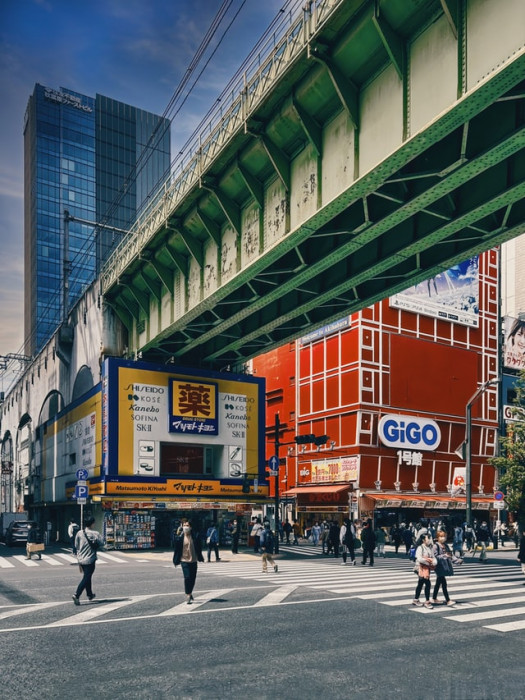
Photo Credit: DLKR on Unsplash
Not to be confused with pharmacies (薬局 yakkyoku), drugstores generally do not deal with prescription medication, though there are some larger ones that do, indicated by「処方せん受付」.
Larger drugstores sell everything from cosmetics, skin care products, toiletries, kitchen essentials, OTC medicine, cleaning products, and more. Some of them blur the lines between supermarkets, selling bread, snacks and drinks.
Drugstores in Japan:
-
Matsumoto Kiyoshi
-
Welcia
-
Tomod’s
-
Cocokara
-
Sugi
and more.
Convenience Store コンビニエンスストア
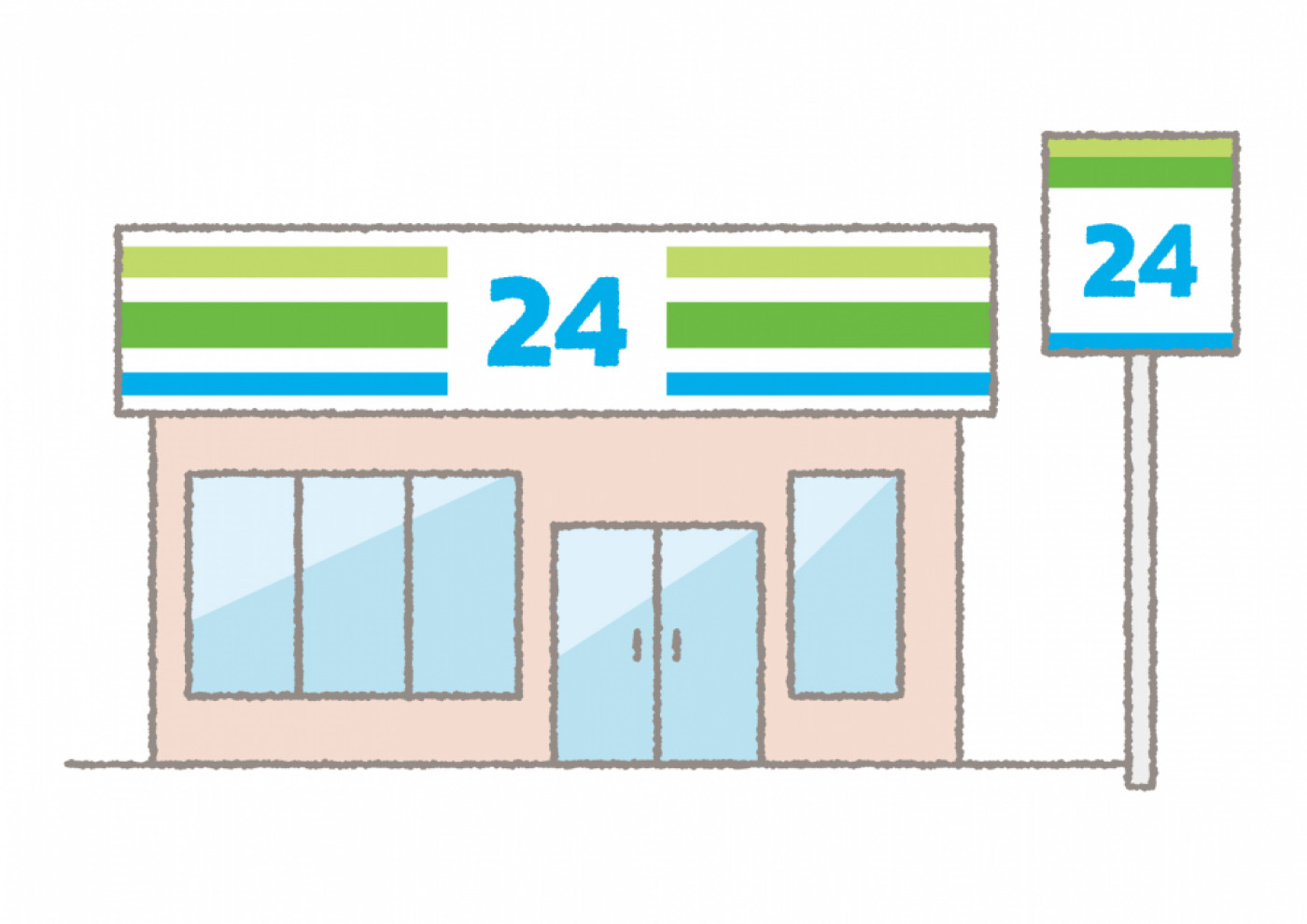
Better known as a konbini (コンビニ), Japanese convenience stores do what they do best by providing convenience. They offer a wide range of products and services and can be found almost around every block.
If other grocery or daily necessity shopping establishments are too far away and you only really need that one item, getting it from the konbini would save you a lot of trouble. Note that prices in konbini may be higher, not to mention lesser options of a product, but that’s the price of convenience.
Konbinis in Japan:
-
7-Eleven
-
FamilyMart
-
Lawson
-
Daily Yamazaki
-
Ministop
-
SeicoMart
-
Tomony
and more.
100 Yen Shops 100均
As its name suggests, items sold at 100 yen shops cost 100 yen (excluding tax). Some items cost more than 100 yen and are indicated by stickers of the price, though these items are still considered pretty cheap.
100 yen shops sell everything from kitchen goods, household items, cleaning supplies, stationery and office supplies, snacks and drinks, gardening supplies, tools, electronics, DIY hobby supplies, and more. Depending on the item, it may be cheaper to get from a 100 yen shop.
100 Yen Shops in Japan:
-
Daiso
-
Seria
-
CanDo
-
Watts
-
Lawson Store 100
and more.
General Goods / Lifestyle Store 雑貨屋・ライフスタイルショップ

General goods store (雑貨屋 zakka-ya) and lifestyle shops are places you can get daily necessities, household goods, and also random knick knacks. It’s hard to give examples for these kinds of stores as depending on the store, the focus of products are different. But generally, they will have kitchen and household items (utensils, plates, containers, cups), self-care products (bathroom and toilet items, haircare, skincare, fragrances, cosmetics), seasonal items, stationery and writing supplies, accessories, DIY hobby supplies, and more.
Large-scale stores may even sell furniture and clothing, or have a section for food & drinks, similar to a supermarket.
General Goods / Lifestyle Stores in Japan:
-
Don Quijote
-
Tokyu Hands
-
Loft
-
HAPiNS / PASSPORT
-
Francfranc
-
MUJI
-
3COINS
and more.
Places to Get All Your Shopping Done
Going to individual shops to buy things can be a huge hassle, so where can you go to conveniently get everything in one trip? Shopping plazas and shopping streets.
Shopping Plaza ショッピングプラザ

Photo Credit: わたらせみずほ - 投稿者自身による著作物, CC 表示-継承 3.0
AEON is probably the most famous of shopping plazas or shopping malls in Japan. The inside of a typical AEON Mall contains a supermarket, food court, and many other tenant shops comprising drugstores, boutiques, specialty shops, general goods shops, entertainment facilities, and more. Truly a one-stop shopping experience.
AEON Malls usually have parking lots as well, a huge convenience for families with cars. Plus, with a car, you can make large purchases on a single trip.
Shopping Plazas in Japan:
-
AEON
-
LIVIN by Seiyu
and more.
Shopping Street 商店街
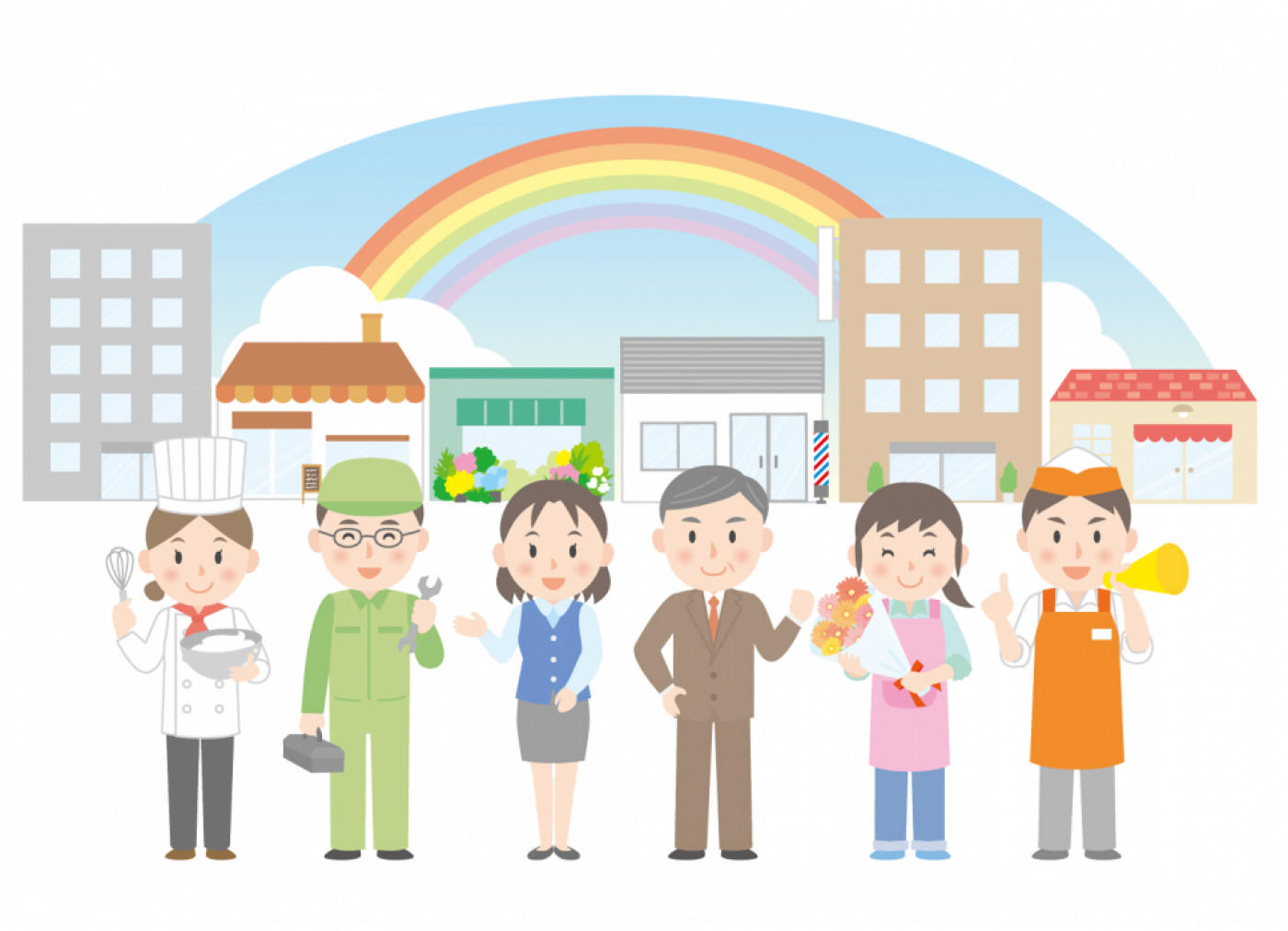
Shoutengai (商店街), as the name says, is a shopping street or shopping streets making up a commercial area in a town. Many individual shops make up a shopping street offering all kinds of products and services, there’s usually a mix of large scale shops, small specialty shops, and mom-and-pop stores.
There’s no fixed layout to what type of shops you can find on a shopping street, exploring a shopping street is the best way to find out what you can get there. Pharmacies, clinics, hair salons, butcher shops, fruit shops, fish shops, vegetable grocers, bakeries, shoe shops, clothing boutiques, tailor services, shoe repairs, anything goes. And of course, food establishments can definitely be found in a shopping street.
Shopping Streets in Japan:
-
Ueno Ameyoko
-
Togoshi Ginza
-
Omotesando
-
Osu
-
Kawasaki Daishi Nakamise
and more.
Online Grocery in Japan
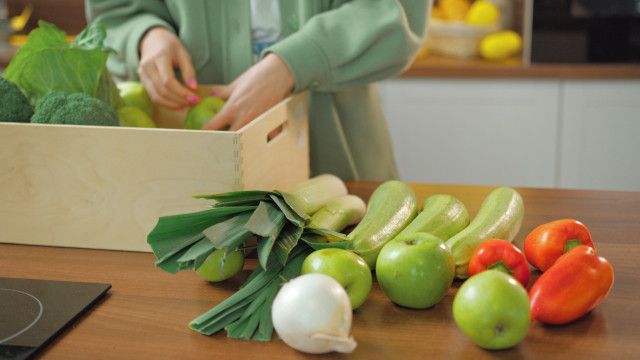
Not keen on lugging heavy items home? Too busy to spare time for buying daily necessities? Or just hunting for the best prices and offers? Try online shopping in Japan, not just for fashion goods but daily necessities and even groceries.
People looking to save money or minimise living costs in Japan will even go out of their way to do price comparisons between physical stores and online shopping. Delivery fees are usually incurred for online grocery shopping but may be waived if you spend over a certain amount.
Online Grocery and Daily Necessities Shopping in Japan:
-
Amazon
-
LOHACO by Askul
-
AEON
-
Rakuten
-
PayPay Mall
-
Cocokara
-
Matsumoto Kiyoshi
and more.
Takeaway (Bonus Content!)
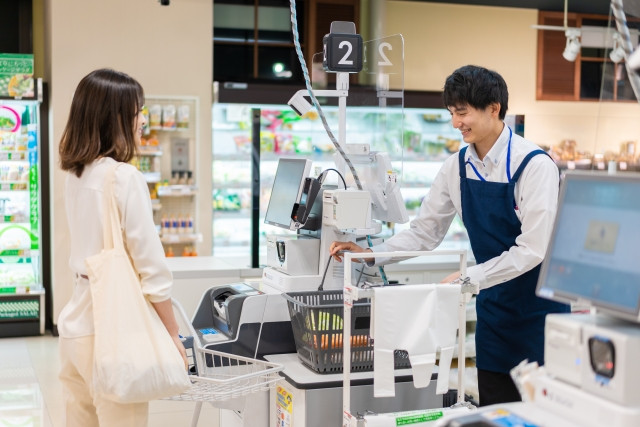
We’ve introduced the typical shops and available options for buying daily necessities in Japan. Life in Japan does not seem like such a farfetched idea anymore, does it?
As a bonus, here we’ll introduce Costco Wholesale from America which is also available in Japan. The system for Costco is the same in Japan - membership only. If there’s something from America you really want, whether it’s a food item or skincare product, try searching on Costco where they might have it. The biggest problem with shopping at Costco’s is that you’ll need a car and also ample storage space in your home since they mostly sell in bulk.








